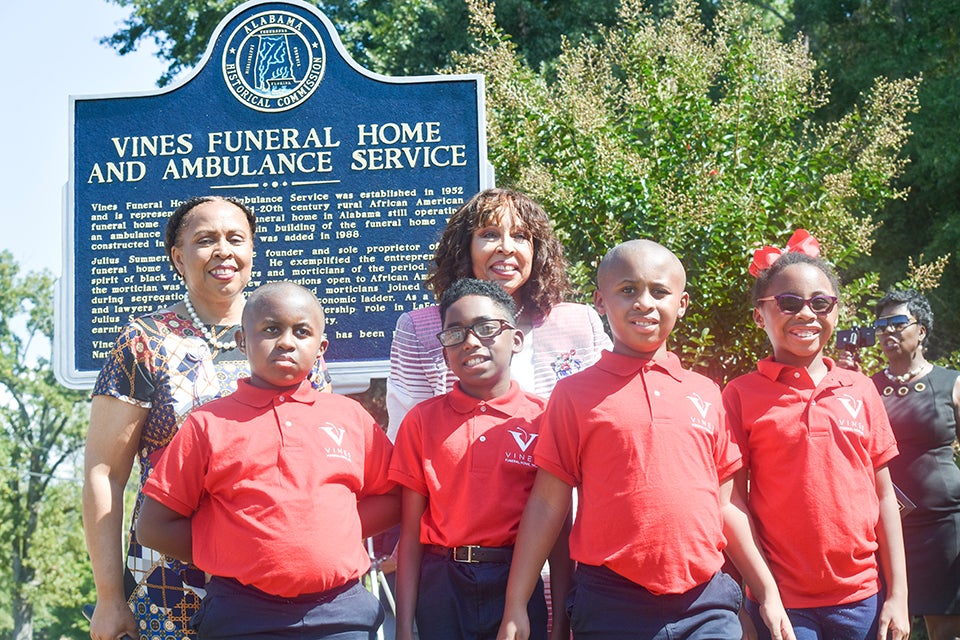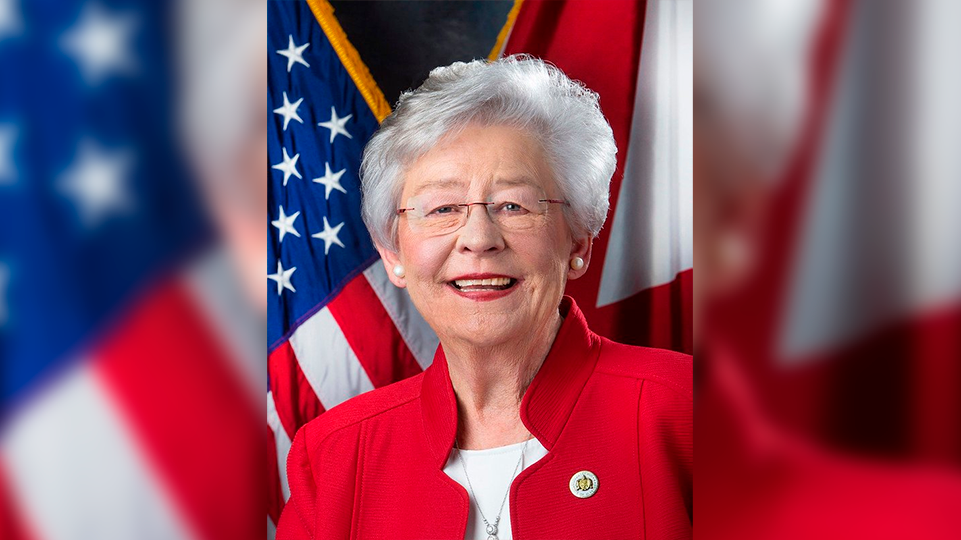Vines Funeral Home reveals national historic marker
Published 7:00 am Friday, September 27, 2019
LaFAYETTE — Vines Funeral Home in LaFayette was etched into history Thursday afternoon by the Alabama Historical Commission.
The funeral home, located at 211 B Street SW in LaFayette, unveiled a historical marker, which commemorates the funeral home being placed on the National Register of Historic Places.
“Vines Funeral Home and Ambulance Service was established in 1952 and is representative of a mid-20th century rural African America funeral home,” the marker reads. “It is the only funeral home in Alabama still operating an ambulance service. The main building of the funeral home was constructed in 1952. A chapel was added in 1988.”
Julius Summers Vines opened the funeral home in 1952 and operated it until 2001. Vines’ daughters Merylin and Angela Vines hosted the program Thursday afternoon.
“This is a very special day for our family,” Merylin Vines said. “Everyone has their own opinions about their dad, and my dad was very special to me. He was more than special to me, and he was so special to so many people in the community.”
Merylin Vines said when she came back from college to help run the family business, she was flooded with stories about her father, Julius Vines.
“Everywhere I went, somebody had a story to tell about my dad,” she said. “How he had helped them, how he helped somebody in their family or how they have heard about him helping somebody.
“Sometimes the people that you least expect have the most interesting and dynamic lives, and although they weren’t meant to have that kind of life, they had it anyway.”
Merylin Vines said that was the story of her father.
“He was simply a country boy that was raised on a farm,” she said. “From there, he accomplished so much.”
The day was filled with friends and family of the Vines’ family sharing stories about Julius, which included remarks from the Alabama Historical Commission and Sen. Doug Jones’ office. The senator was unable to attend the event but sent a representative in his place to read a letter.
Kwesi Daniels of the Alabama Historical Commission and Black Heritage Council, said when talking about erecting a national historical marker, it is not a feat that should be taken lightly.
“In order to become recognized as a site that gets placed on a national registry, you have to have done something significant nationally,” Daniels said.
He said it can be from an architectural standpoint, something about the design or the structure that plays a big role in the community. However, the Vines Funeral Home was a special place.
“What was revealed was that this particular site serves as a recognition of the role of African American rural funeral homes,” Daniels said. “That means this funeral home, and Mr. Vines was a trailblazer for this community.”
He said Julius Vines wasn’t just a funeral home director but also somebody who was able to help members in the community.
“It shows that this space was more than a building — it is part of the culture of LaFayette, Alabama, and is part of the culture of America,” Daniels said. “Mr. Vines understood the role that he played and what ambulance services and funeral services meant to this community.”






